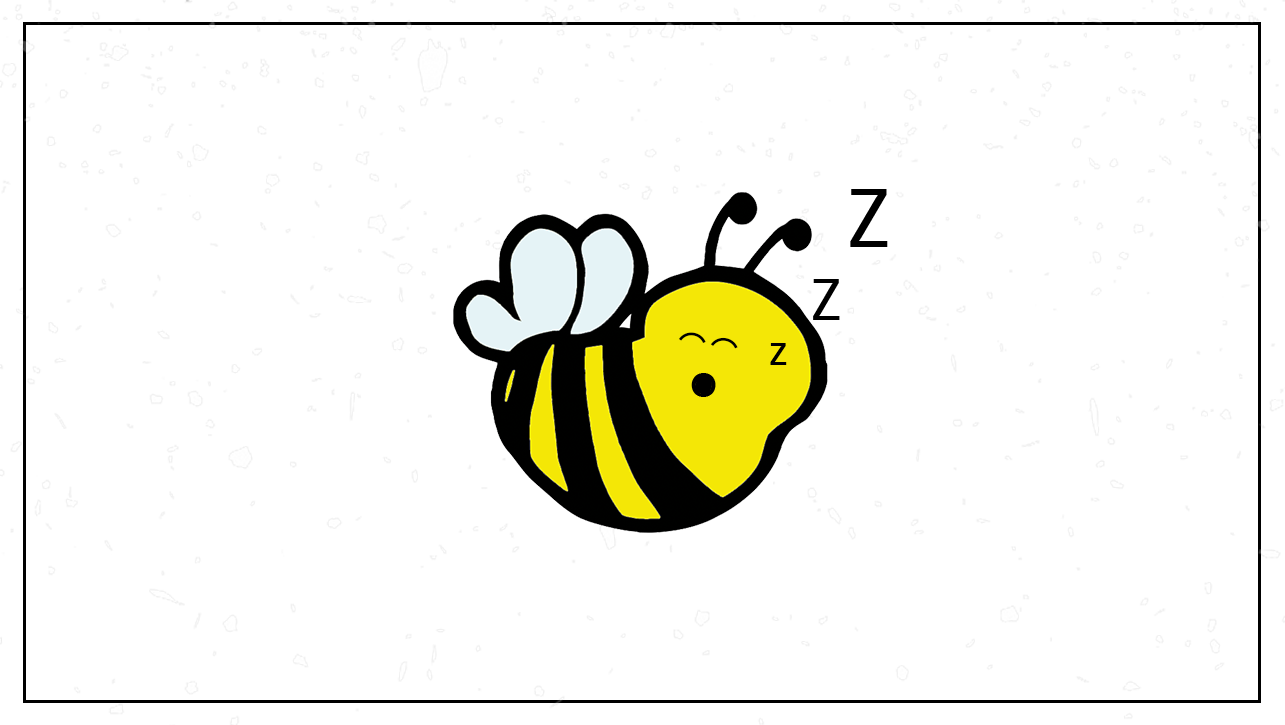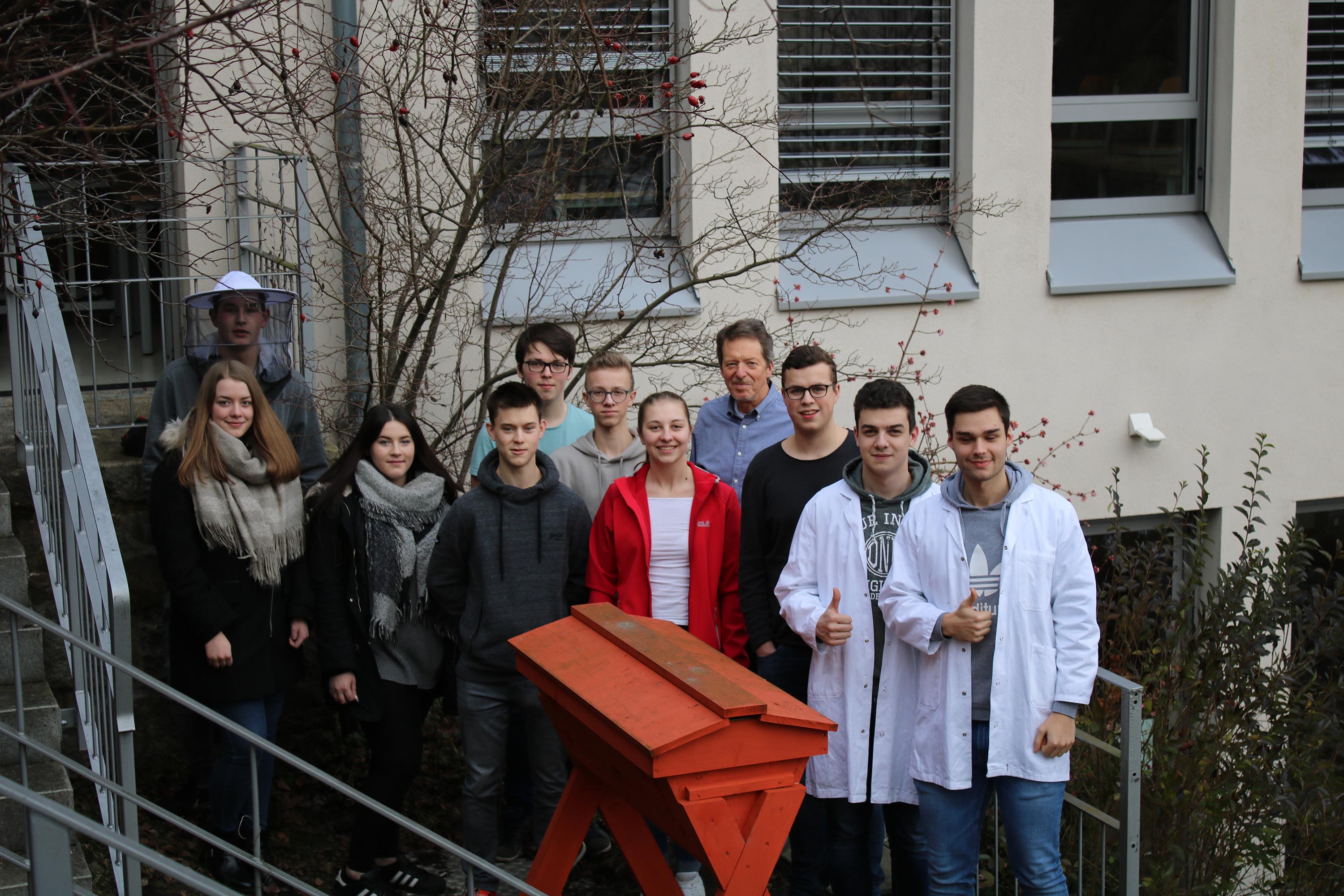
Make sure that you have javascript enabled in order to use the website properly.
Welcome to the LuGy bee streaming site. Here you can now observe our little helpers at any time of the day.
We, the P-Seminar "Experience Bees", wish you a lot of fun while diving into the bee world!


We, the P-Seminar "Experience Bees", are 14 young bee-interested students under the guidance of Mr. Weigel, who have focused for one and a half years on the smallest, but one of the most important domestic animals of mankind. We have achieved a lot in our project phase: from presentations to the construction of a new beehive to the installation of a webcam to watch the bees - for EVERYONE!
The bees of the Luisenburg-Gymnasium Wunsiedel live in a so-called Top-Bar-Hive; this is a beehive, which can be maintained with less effort than the "normal" beehives. Here, the honeycombs are hung freely by the bees on carrier bars, while in normal hives they are installed in wooden frames, which are prefabricated by the beekeeper and then hung up. These stable wooden frames are needed if the honey stored in them is to be harvested by spinning the frames. However, honey harvesting is not our core purpose of beekeeping, and if we want to produce honey, we must do so in a simpler way.
It is far more important for us to get to know the life of the bee colony and make it possible for others to experience it. Therefore it was the goal of the P-Seminar "Experience Bees" of the upper school year 2016/2018 to install a small observation camera above the air hole of our previously built hive, over which the goings-on can be observed live (obviously in the warm months, in which the bees actually fly). We hope that we will arouse a lot of curiosity and joy and that our live stream will be so well received that the effort invested will pay off.
StD Horst Weigel
Anton Müller
Katja Herold
Lukas Thiersch
Sarah Barth
Eva-Maria Hanold
Julian Wunderlich
Carlos Wierer
Nicolas Lucius
Jaqueline Borschberg
Florian Voit
Lukas Rothenberger
Sebastian Ritter
Bees have a considerable influence on human life. Who does not know Albert Einstein's frequently quoted statement in which he sais that humans have only 4 years left on earth if the bees were no longer there?
The fact is that we owe a lot to our bees.
About one third of our food and about 80 percent of our plants depend on direct or indirect pollination by bees. Next to cows and pigs, the bees take third place among our most important farm animals.
The threat to these fascinating and incredibly important animals is enormous due to the use of pesticides, monocultures, feed shortages and environmental pollution.
Each of us can do something to protect and support the bees.
A garden with natural areas for wild flowers, no pesticides, nesting places for wild bees in the garden or buying honey from local beekeepers are only a handful of examples. But not everyone has a garden or a meadow. A donation to a protection organisation is also a great help. One such organization is the german Organisation Mellifera e.V., which works under the slogan "Initiatives for #BeesHumansNature".